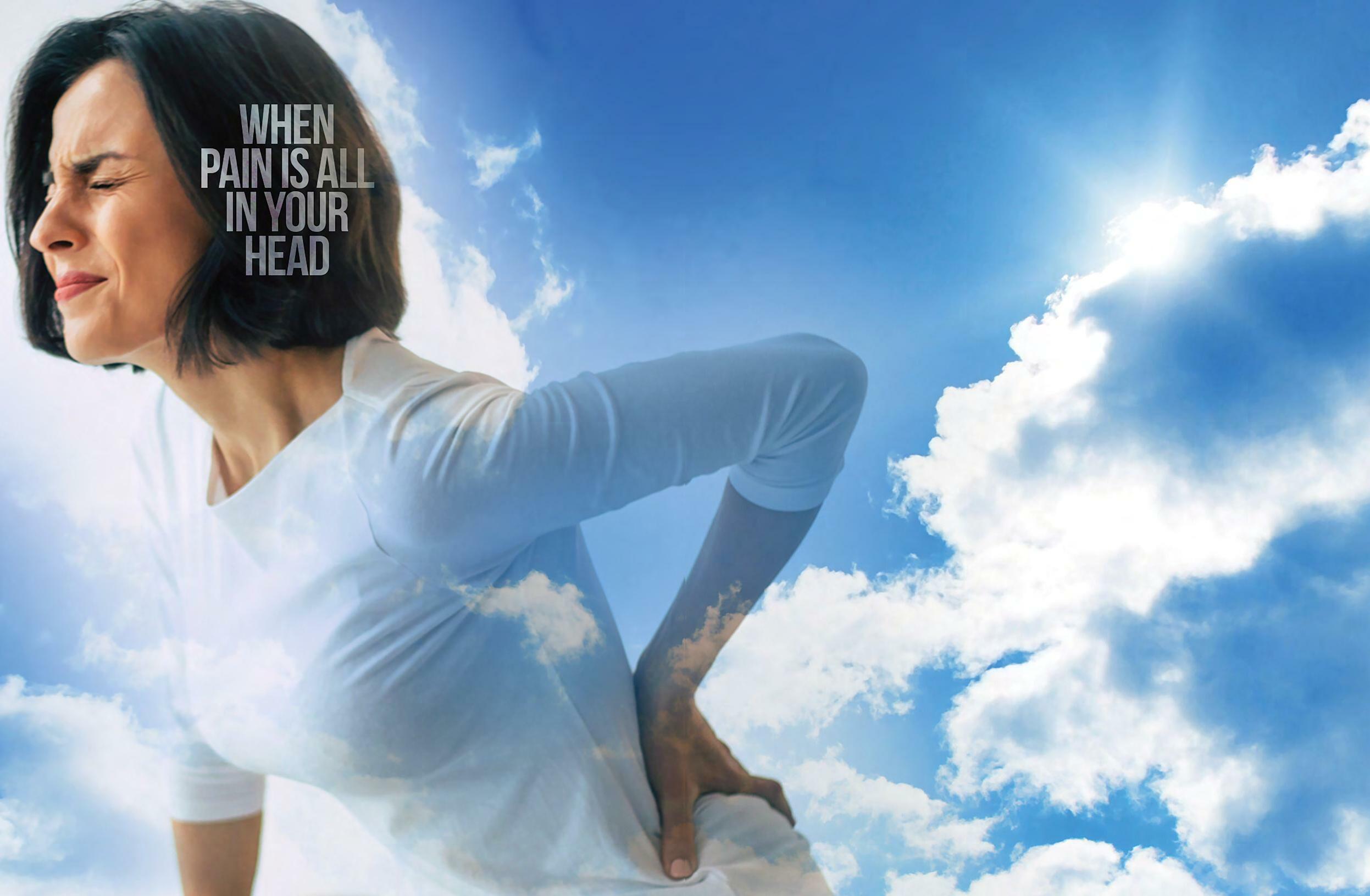Try GOLD - Free
WHEN PAIN IS ALL IN YOUR HEAD
What Doctors Don't Tell You Australia/NZ
|Aug/Sep 2025
The majority of back pain resists any sort of treatment or diagnosis because it's an emotional pain, says Dr John Sarno. Cate Montana investigates
-

In February 1991, Warner Books published the unassuming title Healing Back Pain by John E. Sarno, MD (sarnoclinic.com), a professor of rehabilitation medicine at the New York University School of Medicine. An attending physician in the Department of Rehabilitation Medicine from 1965 until his retirement in 2012, at first Sarno had no idea his book and seminars about what he labeled “tension myositis syndrome” would change the lives of thousands.
He certainly didn't anticipate hearing from hundreds of readers that years, and sometimes decades, of crippling back and neck pain had miraculously disappeared after they read his book and followed its suggestions. Certainly, this writer didn't anticipate that choosing to read his book and write about this syndrome for WDDTY would result in a 90 percent reduction of crippling pelvic and buttock pain that had resisted every treatment under the sun and had been steadily worsening for the last seven years—a pain reduction that, to date, has taken only six weeks.
It all started in the early 1980s, when Sarno had become increasingly frustrated with treating patients for back pain according to the classical model. To this day, that model views back pain as primarily due to structural abnormalities of the spine, most commonly arthritic or disc disorders, compression of nerves due to poor posture, lack of exercise, etc.
“Over the years I became increasingly troubled with the fact that frequently the pattern of a patient's pain and the findings on physical examination didn't match the presumed pathology,” he writes. “For example, pain might be attributed to degenerative arthritic changes at the lower end of the spine, but the patient might have pain in places that had nothing to do with the bones in that area. Or someone might have a lumbar disc that was herniated to the left and have pain in the right leg.
This story is from the Aug/Sep 2025 edition of What Doctors Don't Tell You Australia/NZ.
Subscribe to Magzter GOLD to access thousands of curated premium stories, and 10,000+ magazines and newspapers.
Already a subscriber? Sign In
MORE STORIES FROM What Doctors Don't Tell You Australia/NZ

What Doctors Don't Tell You Australia/NZ
The guy who came in from the cold
Cold-water therapy may not be so good for us after all
3 mins
Aug/Sep 2025
What Doctors Don't Tell You Australia/NZ
A five-minute exercise session reduces blood pressure
Adding just five minutes of activity to your day starts to lower your blood pressure. Even mild exercise like walking up or down the stairs could be enough, say researchers from the University of Sydney.
1 min
Aug/Sep 2025

What Doctors Don't Tell You Australia/NZ
Aromatherapy makes birth easier
Aromatherapy can ease labor pains and even make the birth easier.
1 min
Aug/Sep 2025

What Doctors Don't Tell You Australia/NZ
The best defense
Thyroid cancer is on the rise, says Dr Leigh Erin Connealy. Here's how to keep your thyroid gland healthy and cancer-free
7 mins
Aug/Sep 2025
What Doctors Don't Tell You Australia/NZ
A failed heart can heal itself
The heart can heal itself and regenerate new muscle and tissue.
1 min
Aug/Sep 2025
What Doctors Don't Tell You Australia/NZ
Omega-3 oils stop the growth of prostate cancer
Men whose prostate cancer is in its early phase should start taking omega-3 supplements and eating more fish—it can stop the growth of cancer cells.
1 min
Aug/Sep 2025
What Doctors Don't Tell You Australia/NZ
Thyroid drug can cause osteoporosis
People taking one of the world's most prescribed drugs are at risk of developing osteoporosis, the disease that weakens bones. The drug, levothyroxine, is the standard remedy for hypothyroidism, but it's also prescribed to people with normal thyroid activity.
1 min
Aug/Sep 2025
What Doctors Don't Tell You Australia/NZ
HRT after menopause doubles heart attack and stroke risk
Most of the seven different forms of HRT (hormone replacement therapy) increase the risk of cardiovascular disease, but some are more dangerous than others.
1 min
Aug/Sep 2025

What Doctors Don't Tell You Australia/NZ
Sail through menopause
Hormone replacement therapy is back in fashion. Celeste McGovern looks at the risks and alternatives
13 mins
Aug/Sep 2025

What Doctors Don't Tell You Australia/NZ
Keto diet boosts new cancer therapy
A new type of immunotherapy to fight cancer is boosted by a ketogenic diet.
1 min
Aug/Sep 2025
Listen
Translate
Change font size

